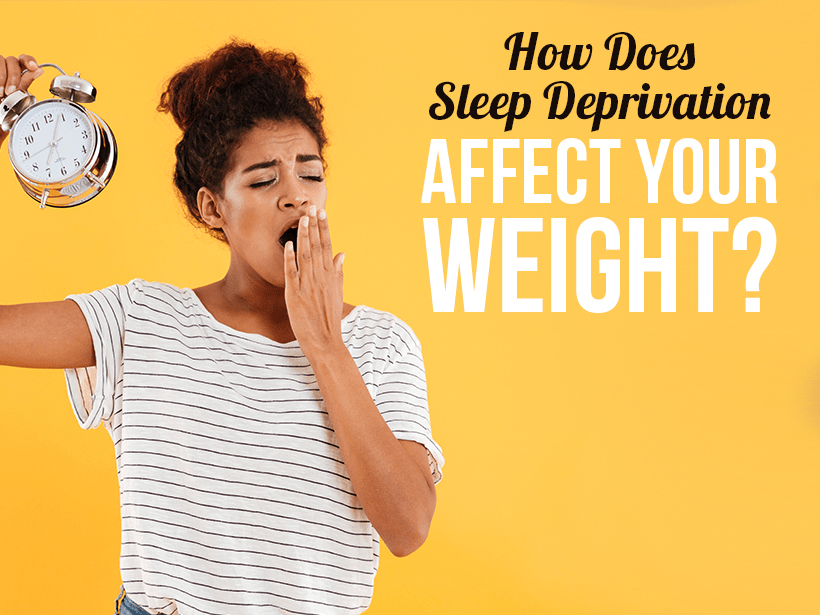Have you been counting fewer sheep than usual? You might be seeing the results of your lack of Z's on the scale. Sleep is your body's time to repair and prepare for the coming day, both physiologically and psychologically. However, missing out on your eight hours might also be setting you behind on your weight loss goals. Read on to learn more about how skipping out on sleep can set you back on the scale.
Sleep deprivation causes you to crave junk food
Have you noticed that you have a tendency to order takeout after a sleepless night? Your body might be telling you to compensate for lost sleep. Missing out on sleep can cause you to crave crappy food, according to research from the University of Berkley.1 Using magnetic scans of the brain, researchers found that “participants favored unhealthy snack and junk foods when they were sleep deprived.” This was because, when participants did not get enough sleep, the areas of the brain that are responsible for good decision-making were impaired. At the same time, areas of the brain that respond to rewards were amplified. This means that when you're sleep deprived, you feel better after reaching for junk food– and you aren't as good at resisting the temptation.
Sleep deprivation makes you hungrier in general
In addition to wanting more junk food, you'll likely want to eat more in general when you're tired. Leptin, a hormone that's responsible for reducing appetite, is produced more slowly when you haven't been sleeping well.2 This means that you'll feel less full and satisfied even after eating when you are sleep deprived. In addition to lower levels of leptin, a lack of sleep also causes an increase in the hormone ghrelin, which is responsible for making you feel hungry. This means that you'll want to eat more the day after you miss out on sleep, which can lead to weight gain and overeating.
A lack of sleep wreaks havoc on your fat cells
If you're feeling sleepy, your fat cells likely are too– and they can't work well under poor conditions. One study found that fat cells running on little sleep reacted up to 30 percent less efficiently to the presence of insulin.3 Insulin is a hormone that regulates energy storage and is closely related to the function of adipose (stored fat) cells. Chronic sleep disruption has been found to lead to weight gain, increased appetite, the onset of type 2 diabetes, and can even be linked to heart problems.
Missing sleep makes you crave carbs
If you're following a low-carb diet plan like the ketogenic diet, you might want to be especially sure that you're heading to bed at a reasonable hour. One study showed that a lack of sleep can cause you to consume more of your calories from carbohydrates.4 Sleep deprived dieters were also found to eat an average of 65 percent more carbohydrates when snacking after 7 pm.
The bottom line? If you're looking to effectively lose weight, making sure that you're getting at least 8 hours of sleep can help you skip the carbs, avoid overeating, and can even help your fat cells respond to your body's hormones with greater ease.
NUTRITIONAL DISCLAIMER
The content on this website should not be taken as medical advice and you should ALWAYS consult with your doctor before starting any diet or exercise program. We provide nutritional data for our recipes as a courtesy to our readers. We use Total Keto Diet app software to calculate the nutrition and we remove fiber and sugar alcohols, like erythritol, from the total carbohydrate count to get to the net carb count, as they do not affect your blood glucose levels. You should independently calculate nutritional information on your own and not rely on our data. The website or content herein is not intended to cure, prevent, diagnose or treat any disease. This website shall not be liable for adverse reactions or any other outcome resulting from the use of recipes or recommendations on the Website or actions you take as a result. Any action you take is strictly at your own risk.
- What Are Net Carbs? - April 29, 2020
- The Most Comprehensive Keto Alcohol Guide - April 28, 2020
- How to Measure Body Fat Percentage - April 26, 2020































